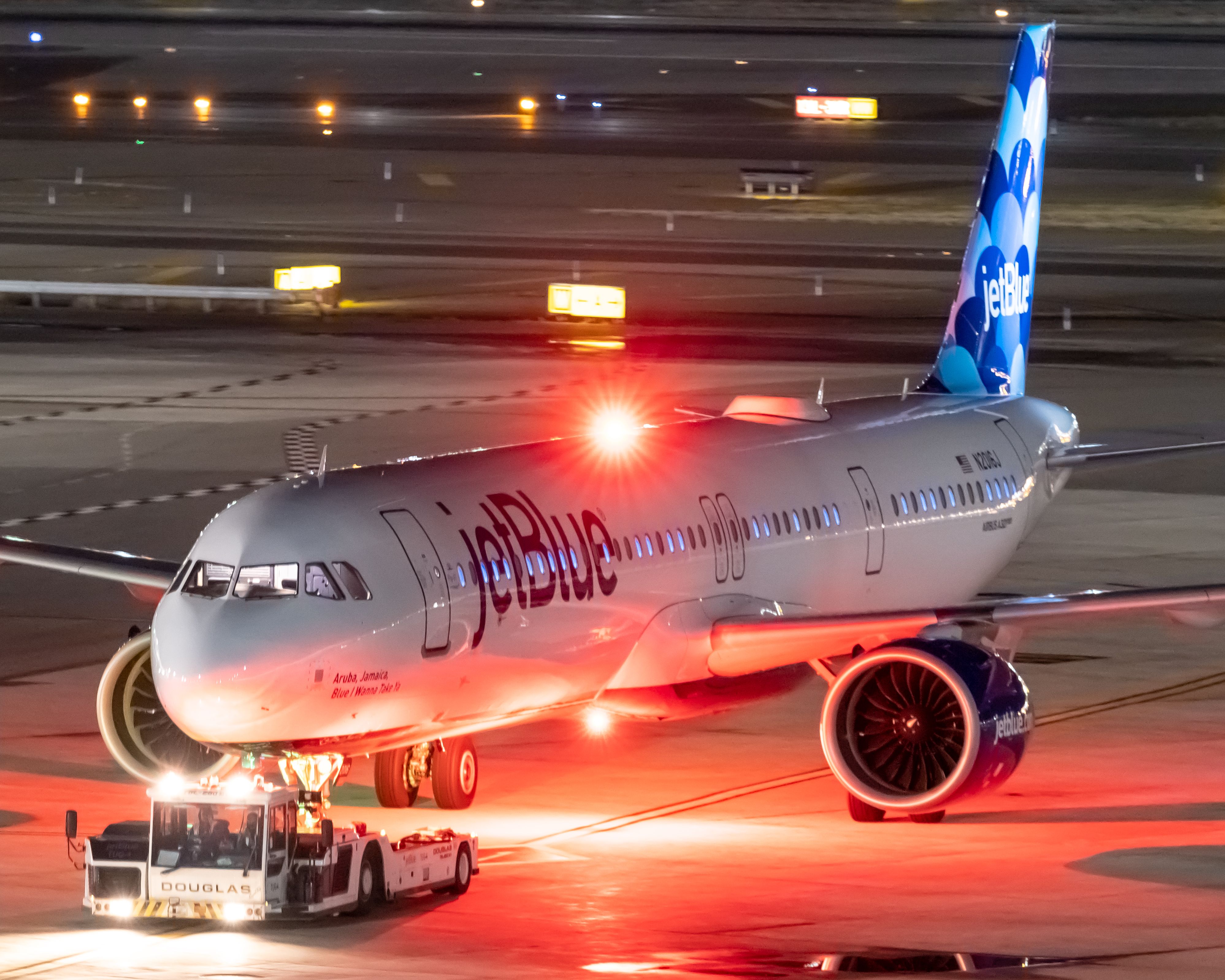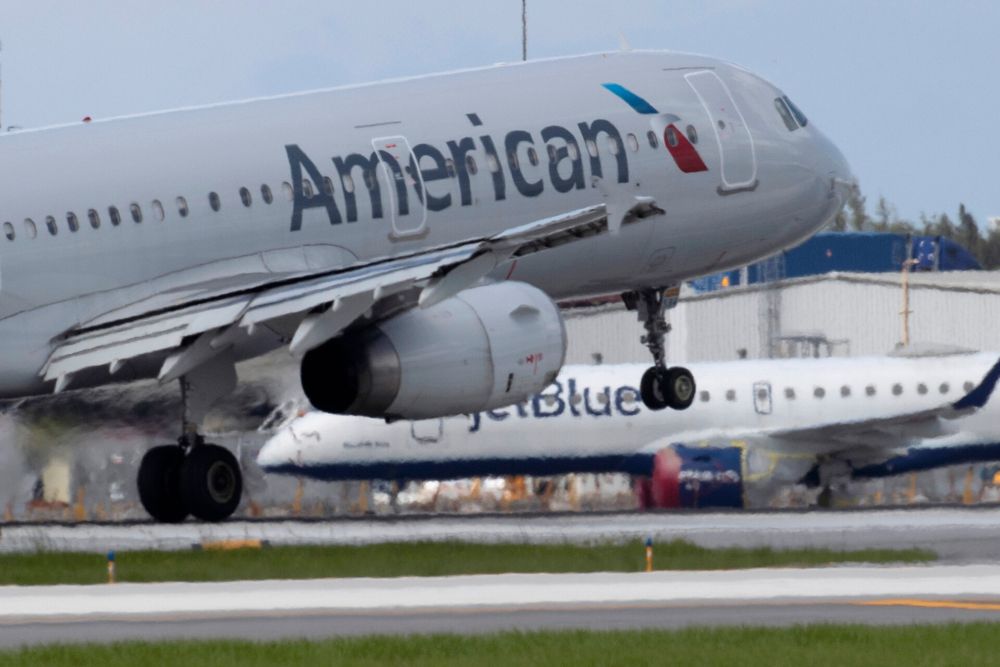JetBlue
- IATA/ICAO Code
- B6/JBA
- Hub(s)
- Boston Logan International Airport, Los Angeles International Airport, New York JFK Airport, Orlando International Airport
- Year Founded
- 2000
- CEO
- Robin Hayes
- Country
- United States
A merger between JetBlue and Spirit Airlines is the best option because it would create a national low-fare challenger to the US’ top-four (American, Delta, Southwest, and United), said Robin Hayes, JetBlue’s CEO, during its speech on the 29th Annual Transportation, Airlines and Industrials Conference.
A challenger to the top 4
On Monday, JetBlue decided to go hostile in its attempted takeover of Spirit Airlines, an ultra-low-cost carrier. One day later, Robin Hayes said if Spirit Airlines shareholders preferred JetBlue’s bid over Frontier’s, it would allow the creation of a low-fare big-enough carrier to directly compete against the leading US airlines, American Airlines, Delta, Southwest, and United.
Robin Hayes stated,
“Competition in the US faces a big challenge that we’ve been flagging for years. The big four airlines control 80% of the market. Our proposed acquisition of Spirit would create a national low-fare challenger to the Big Four, helping us immediately grow from a 5% player to an 8% player and bring our unique value proposition to even more customers across the country.”
JetBlue has been trying to appeal to Spirit Airlines’ shareholders after the low-cost airline’s management rejected the bid from JetBlue earlier this year. Yesterday, JetBlue offered a US$30 per share in its cash-up-front tender offer, and it is open to paying its original US$33, a nearly 70% premium on Frontier’s offer.
In the meantime, Spirit’s management urged its shareholders not to act on the new JetBlue offer yet.
According to Spirit Airlines, there are concerns antitrust regulators would not approve a merger with JetBlue due to JetBlue’s relationship with American Airlines in the so-called Northeast Alliance.
Spirit Airlines’ management rejected JetBlue’s first offer. Photo: Vincenzo Pace | Simple Flying.
Lower fares
Robin Hayes added that creating a bigger and better JetBlue would be better for the airline competition in the United States. He argued that bringing the JetBlue effect to more customers would generate more benefits and competition than combining two ultra-low-cost carriers alone.
Based on an economic analysis, when JetBlue enters a non-stop route, it helps bring down legacy fares by about 16%, which is about three times as much as an ultra-low-cost carrier, said Hayes.
Instead, the Frontier offer has a more significant overlap with Spirit’s non-stop routes. JetBlue believes its greatest overlap challenge in a merger with Spirit would be the services from Fort Lauderdale, Florida.
JetBlue and American have a partnership called the Northeast Alliance. Photo: Getty Images
The Northeast Alliance is a red herring
Spirit’s management rejected the proposal from JetBlue due to regulatory concerns over the Northeast Alliance. Nonetheless, JetBlue’s management is calling this a red herring and believes that its proposed transaction with Spirit would be approved on a timely basis.
The airline management said why wouldn’t customers and regulators want more of it if the JetBlue effect is three times more effective than ULCCs?
Finally, the ultra-low-cost carriers would remain active in the United States, expanding and offering their model of service. JetBlue pointed out the many ULCCs still in the market, from Frontier, which is looking to double its capacity over the next six years, to Sun Country, which launched 34 new markets last year, Allegiant, and newcomers like Breeze, Avelo, and Midwest Express.
Which proposal do you think would be better, the Frontier-Spirit or the JetBlue-Spirit? Let us know in the comments below.
Read Next
About The Author


.jpg)




